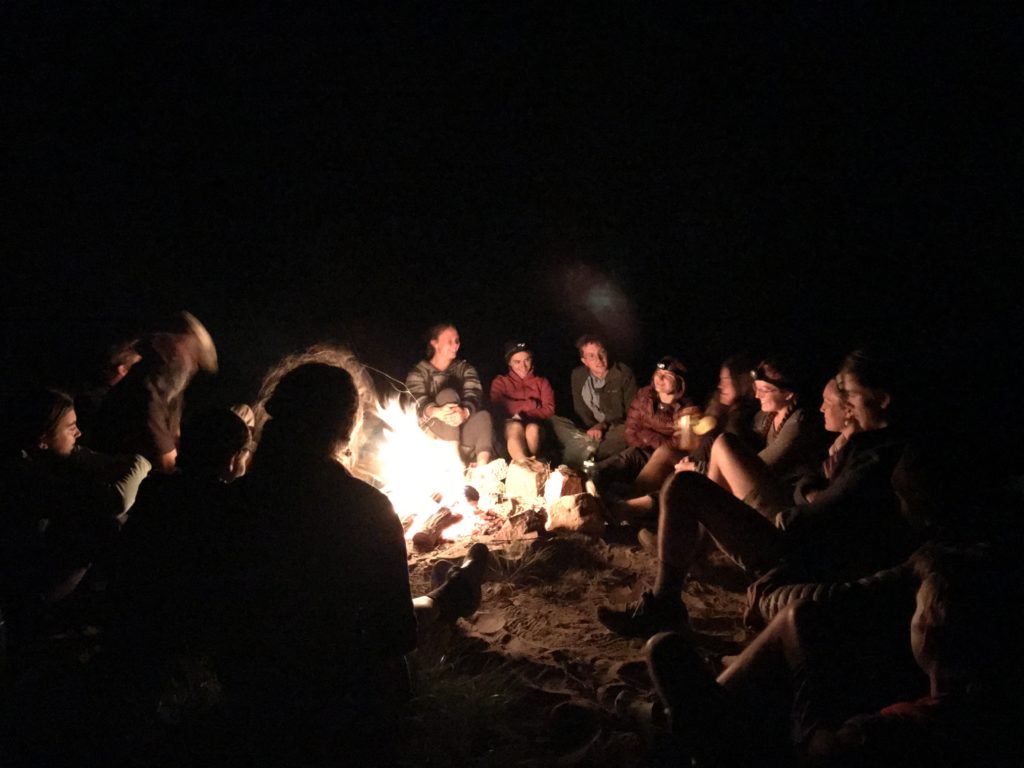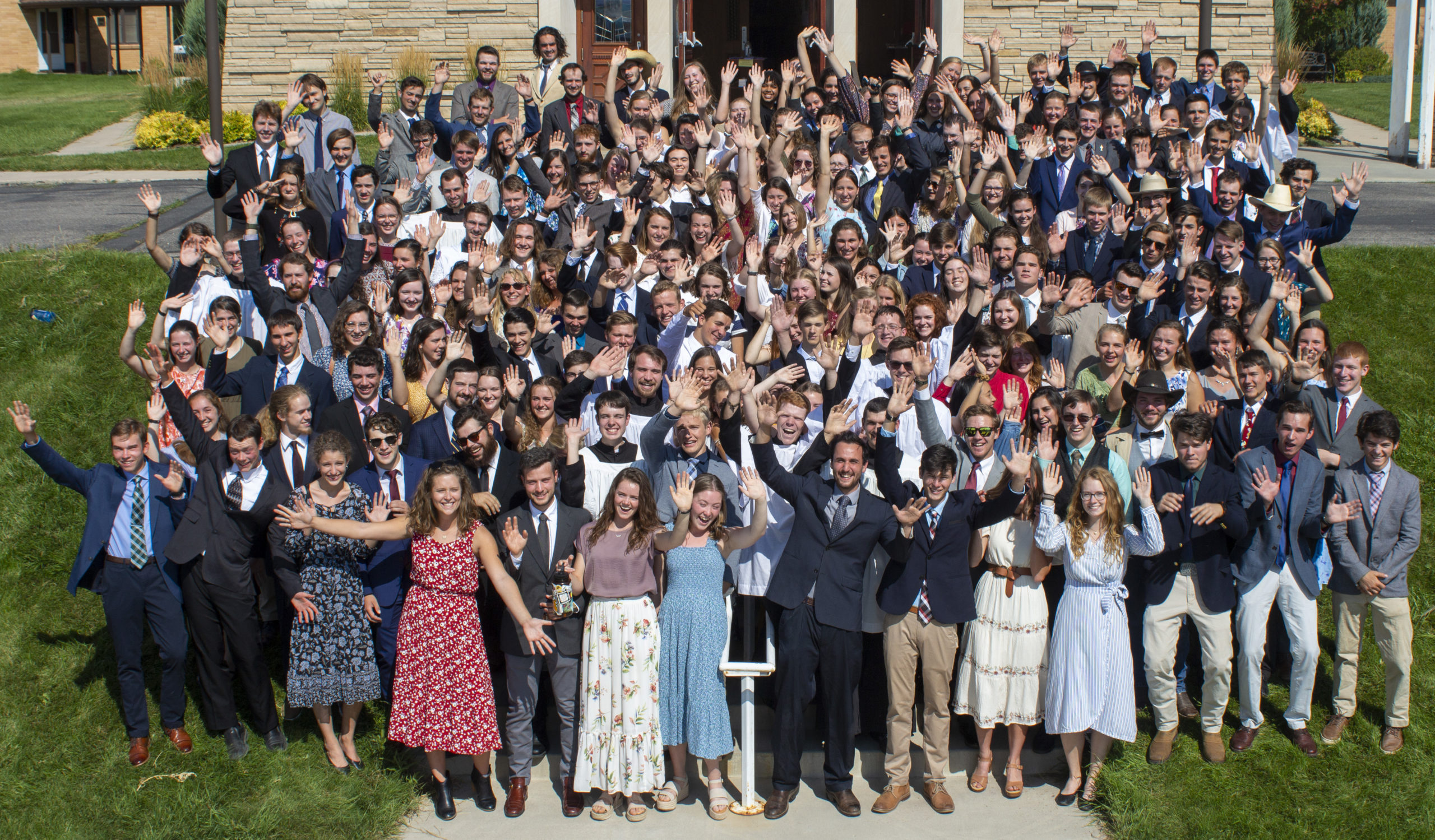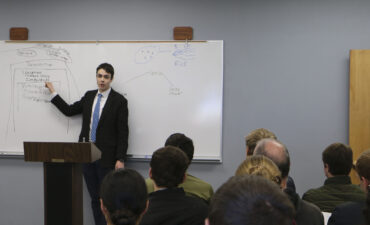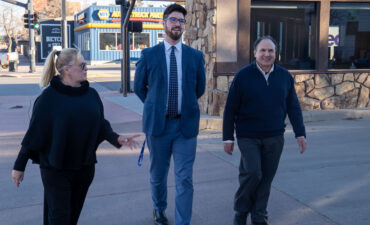“The Piety of Thought:” A Response to Dr. Kanelos
On November 8th, Dr. Pano Kanelos, former President of St. John’s College, announced the founding of The University of Austin on Bari Weiss’ “Common Sense” substack, “We Can’t Wait for Universities to Fix Themselves. So We’re Starting a New One.” Two weeks earlier, Dr. Kanelos had delivered an address at the Philadelphia Society’s Fall Meeting entitled “Revolution and Renewal in Higher Education,” in which he highlighted the major problems facing contemporary higher education, and proposed as his solutions three things: remembrance (respect for the past and for the tradition), independence (freedom of thought not constrained by political concerns), and transcendence (the truth that rises above particular circumstances). President Arbery was asked to present a response to Dr. Kanelos’ address at that same meeting, and particularly addressed the question of whether religious faith should play a part in the new university. “The Piety of Thought” is offered here in its entirety, as his contribution to the important conversation now taking place on the culture and future of American academia.
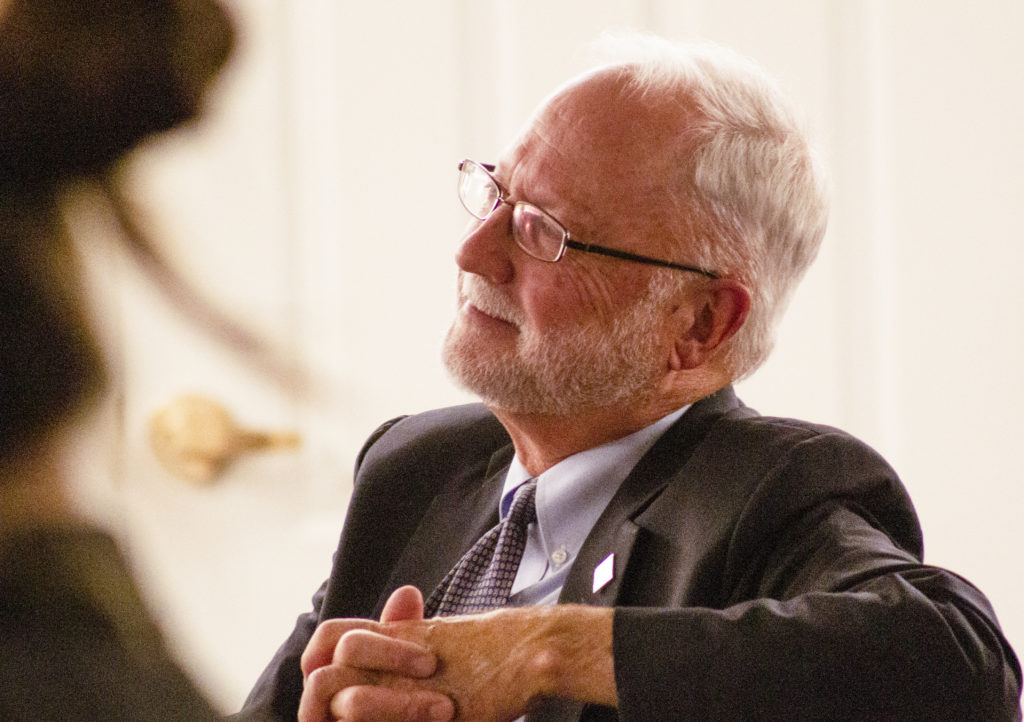 “The Piety of Thought:”
“The Piety of Thought:”
A Response to Dr. Kanelos
by Dr. Glenn Arbery
Prof. Kanelos has lucidly and forcefully named the problems we face in higher education, and I particularly appreciate his insight into the contradictory positions to which the modern university is committed—the untethered will of the protean individual, on the one hand, and the totalitarian leveling impulse on the other. Both of these, as he shows, arise from essentially the same materialistic assumptions. For both, the given world (including the body) presents itself as “stuff” to be manipulated and reshaped by will and desire; for both, the past consists of power structures that must be overcome because they restrict individual choice and unequally distribute material goods. The remedies that Prof. Kanelos proposes are so obviously right to my mind—remembrance, independence, and transcendence—that I do not want to quarrel with them so much as to add a further consideration from the perspective of a religious college.
The question I want to raise is whether Prof. Kanelos’ remedies do not all imply some recovery of piety. Martin Heidegger famously ended his essay on technology with the statement that “Questioning is the piety of thought.” As he wrote elsewhere, “’Piety’ is meant here in the ancient sense: obedient, or submissive, and in this case submitting to what thinking has to think about.” When questioning is pious, in other words, it does not assert an intention toward the forest—say, in terms of board feet of lumber—so much as it obeys or submits to the questions that arise, perhaps poetically. Prof. Kanelos, for example, does not impose a meaning on education but he looks at the root of the word in e-ducare —that is, “to lead out of” and asks, “To lead out of what?” Clearly, out of ignorance—and how is someone to be led out of ignorance, out of the shadow world into the light? First of all, by moving out of the present moment, the now, through memory, because the very idea of truth for the Greeks means revealing the full reality of something that would otherwise be obscured in forgetfulness, like the memory of Odysseus back in Ithaka. The piety of thought might require a ritual of questioning—say, a seminar—but this questioning differs from the obedience and submission involved in religious liturgy. In the Mass, for example, worship follows prescribed forms and orders, not a sequence of questions, and the Mass assumes the presence of God. For the piety of thinking, on the other hand, the question of whether God exists would be the essential one—a question not at all at odds with religion. Needless to say, the modern university does not ask this question at all. As Prof. Kanelos writes, it views “the orientation toward transcendence as at best naivete, and at worst something threatening.”
 Now what about a college like mine that is overtly religious in nature? The existence of God as revealed in Scripture and the Church is our bedrock assumption, and participation in the body of Christ constitutes the central action of the college in all its dimensions. The question I want to raise has to do with our bearing toward God in a Catholic college. Is it a restraint on the necessary and wholesome freedom of the intellect to exercise religious piety at an institution of higher education? We are also dedicated to the piety of thought, but do we lose the essential question by taking on faith the existence and presence of God rather than distancing ourselves from belief and holding ourselves in the attitude of questioning?
Now what about a college like mine that is overtly religious in nature? The existence of God as revealed in Scripture and the Church is our bedrock assumption, and participation in the body of Christ constitutes the central action of the college in all its dimensions. The question I want to raise has to do with our bearing toward God in a Catholic college. Is it a restraint on the necessary and wholesome freedom of the intellect to exercise religious piety at an institution of higher education? We are also dedicated to the piety of thought, but do we lose the essential question by taking on faith the existence and presence of God rather than distancing ourselves from belief and holding ourselves in the attitude of questioning?
Let me take an example from what we do at Wyoming Catholic College. Before they start their freshman year classes, all the freshmen come to Lander a month early and turn in their cell phones, which are prohibited at WCC. They spend a week learning wilderness first aid, and then for three weeks they go out into the Wind River Mountains or the Tetons on an extended, physically-grueling backpacking expedition where they will learn the basic skills that will sustain them on outdoor trips for the next four years. They traverse some of the most beautiful and challenging landscapes of the Mountain West. Usually there is a peak ascent starting before dawn that takes them to the top of a 12,000 or 13,000-foot peak. Every day, they come upon scenes that overwhelm their capacity to describe them. Ordinary language is not adequate—one of the central reasons that we emphasize poetic knowledge, the wedding of world and word. At night, they see starlight as Homer saw it, but few in modern world ever do. When they come down from the mountains into their freshman classes—the Iliad, Genesis, logic, spoken Latin, field science—they return to the real presence of the community.
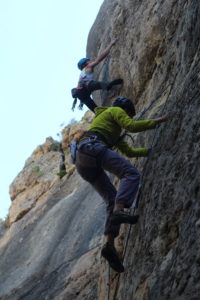
We understand this experience in terms of awakening wonder at the given world, and we ground it in the daily practice of the Catholic faith, with Mass every day, prayer at night, and an implicit understanding that in what they see and marvel at, they are coming to know God in his first book, the incarnational reality of the natural world. Is this pedagogically irresponsible? That is, does this emphasis preempt the crucial question of God’s existence and flatten the life of the mind into mere conformity? I would say, rather, that it awakens confidence that real questioning is possible and that the gauge of truth might be the experience of beauty and grandeur. Instead of being steeped in mistrust and suspicion, freshmen begin their college education by experiencing nature not as an abstraction, but as the givenness both outside them and within, retrieved from technological forgetfulness into the presence of incarnation. This recovery of piety toward nature seems to me a crucial aspect of the remembrance recommended by Prof. Kanelos.
In fact, can there be remembrance without piety? The great image, of course, is Aeneas carrying his father Anchises out of burning Troy at that intersection of past and future of which Prof. Kanelos writes. Aeneas exhibits obedience and submission, carrying the memory of the city, yes, but as part of an overarching divine purpose toward which he moves in a kind of obedient unknowing. Biblically, the event most to be remembered is being led out of Egypt, being saved from idolatry and oppression, and then receiving the law from God. The tradition of the West has held this story of the exodus as the compelling political and religious counterpart to the allegory of the cave in Plato. It seems to me crucial in addressing the contemporary bankruptcy of higher education to understand religion purification as the other side of the narrative of enlightenment. In “Hebraism and Hellenism,” Matthew Arnold quotes a saying: “’Socrates is terribly at ease in Zion.’” Arnold continues that Hebraism “has always been severely preoccupied with an awful sense of the impossibility of being at ease in Zion… It is all very well to talk of getting rid of one’s ignorance, of seeing things in their reality, seeing them in their beauty; but how is this to be done when there is something which thwarts and spoils all our efforts?” As Prof. Kanelos reminds us, we see through a glass darkly. We are not only ignorant, but also proud and sinful.
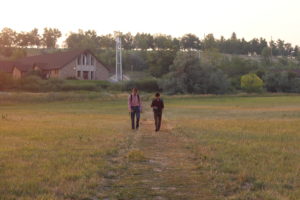
When we discover God in the course of remembrance, then, we discover the problem with intellectual enlightenment alone, an alternative path that requires obedience and submission in an exacting way. How will we answer to God, then? For the dominant voices in the contemporary academy, God is a suffocating, oppressively prescriptive imposition by outmoded structures of power, the ultimate policeman to be defunded, the great depriver. Do we rediscover God in the tradition only in order to reject the past where He held sway—in other words, to conclude that He is mercifully dead? The alternative reading of the tradition that a college like ours proposes is that the rediscovery of the salvific perfection of God and the reality of personal sin give us both genuine hope and the promise of unbounded meaning. Piety toward God enforces the piety of thinking.
It strikes me that piety also underlies the possibility of real independence from the tyranny of circumstances. If “independence” means no more than getting free from the reigning view, then its language can easily be co-opted by the modern university—independence from the past, independence from biological gender, and so on. Independence of thought means a liberation from the insularity of regimes, religions, conventions of language, and so on, but the most effective means of liberation is being able to raise the real question of God’s existence. Quid sit deus? as Leo Strauss asked. What is God? What might God be? If we neglect to ask what God is, we act as if the inexhaustible question had been settled once and for all, an attitude that might lead us into the more colorful passages of Jeremiah.
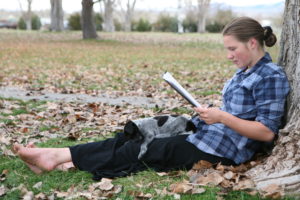 To acknowledge dependence on God fosters the habit of gratitude. Even Milton’s Satan saw his dependence and hated what he called “the debt immense of endless gratitude.” Modern universities feel no such debt. There is complex intelligibility—say, in the phenomena of black holes or the structure of DNA—but nothing to which we owe gratitude, no giver who provides a cosmos that is knowable. As Pope Benedict said in his Regensburg Address in 2006, “Modern scientific reason quite simply has to accept the rational structure of matter and the correspondence between our spirit and the prevailing rational structures of nature as a given, on which its methodology has to be based. Yet the question why this has to be so is a real question”—that is, we are back to Prof. Kanelos central point, the question why.
To acknowledge dependence on God fosters the habit of gratitude. Even Milton’s Satan saw his dependence and hated what he called “the debt immense of endless gratitude.” Modern universities feel no such debt. There is complex intelligibility—say, in the phenomena of black holes or the structure of DNA—but nothing to which we owe gratitude, no giver who provides a cosmos that is knowable. As Pope Benedict said in his Regensburg Address in 2006, “Modern scientific reason quite simply has to accept the rational structure of matter and the correspondence between our spirit and the prevailing rational structures of nature as a given, on which its methodology has to be based. Yet the question why this has to be so is a real question”—that is, we are back to Prof. Kanelos central point, the question why.
We hold open the question of God even when we religiously affirm His existence, so much does He exceed us. Acknowledging our givenness means submitting to what creation makes us ask. Our students do not bestow intelligibility on the mountain landscapes or the night sky, but they discover it. Their wills do not determine what exists, but that fact is an opportunity for piety toward what is good and true and beautiful prior to their choices. Things have given natures, their own bodies included, and a reverent acknowledgment of their dependence seems to be natural and right. Something like this is the cultural corrective we most need, and though it might seem the most unlikely, it is perhaps not as far away as we think.
Givenness leads us into questioning and thinking.
It also leads directly to considerations of transcendence.
The teaching of modern universities is that we inhabit a godless, indifferent, pointless material universe where consciousness itself is an accident. Much of the success of Jordan Peterson stems from his spirited rejoinder to the prevailing nihilism that settles out from this failure of questioning. If we reopen the essential questions, we can have faith that the truth will sustain us and reward us for our love of it. Transcendence draws piety toward it. At our college, following St. Paul in Romans, “We know that all things work together for good for those who love God, who are called according to his purpose” (Romans 8:28).
How much would change in higher education if this simple hope could be restored?
